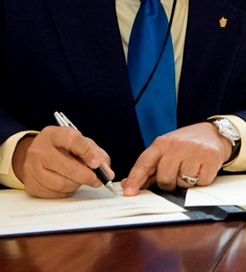Clients can be protected from TIEAs, say trust experts
 (CNS): A panel of trust experts from Cayman, Guernsey, the UK, Switzerland and the Bahamas examined whether the right to privacy for trust clients could continue in light of the push by international bodies to live under regimes of disclosure during an industry conference last week where the issue of confidentiality was the top talking point for delegates. Despite the tax information agreements signed by offshore centres in recent years however, there were still ways that trust professionals could protect beneficiaries and confidentiality because of the hoops tax authorities needed to go through to extract information, the conference heard.
(CNS): A panel of trust experts from Cayman, Guernsey, the UK, Switzerland and the Bahamas examined whether the right to privacy for trust clients could continue in light of the push by international bodies to live under regimes of disclosure during an industry conference last week where the issue of confidentiality was the top talking point for delegates. Despite the tax information agreements signed by offshore centres in recent years however, there were still ways that trust professionals could protect beneficiaries and confidentiality because of the hoops tax authorities needed to go through to extract information, the conference heard.
The central paradox for trustees, according to Shan Warnock-Smith QC, was how to reconcile the principles of confidentiality and disclosure, which were both expected to be observed by trust professionals. Warnock-Smith QC mediated a panel at Mourant Ozannes first conference of its kind last week where she described the issue as a balancing exercise.
Panelist Robert Shepherd from MourantOzannes in Guernsey said onshore governments’ requirement for money had resulted in the UK tax collectors beefing up their staff recruiting 2,200 more tax inspectors. He said that the onshore governments have tried two ways to get at funds – by getting offshore institutions to disclose more and alternatively by circumventing offshore jurisdictions by getting investors onshore to tell them what they know. Tax Information Exchange Agreements (TIEAs) had been created by onshore governments to try and force offshore institutions to provide more information which would then bring in more money for them, Shepherd believed.
On the face of them TIEAs appeared “fearsome” with one tax authority forcing another to disclose information on foreign nationals, Shepherd noted, but actually there was a good deal that trust professionals could do to protect beneficiaries and honour obligations of confidentiality, citing a number of hoops that tax authorities needed togo through to extract information. For example, the onshore authority must initially identify the tax payer in question about whom they require the information and equally they must have exhausted all local powers to gain information first.
Julien Martel, from Butterfield in the Bahamas said that the issue about TIEAs was a “storm in a tea cup”and the issue did not come up frequently in conversation. He went on to say that the issue of confidentiality in the light of increasing burden of disclosure was actually a global issue and not just a question for international financial centres, which were in fact better positioned to deal with the conflict because of their flexibility.
Confidentiality was an issue for clients but it was not stopping business, he added.
Alan Milgate, from Rawlinson & Hunter in Cayman said that in certain cases trustees wanted to disclose specific information to beneficiaries and that it was the duty of the trustee to try and establish the costs and benefits for disclosing the information. Some beneficiaries were better able to process information than others, he said, and added that deciding how much information to give out to beneficiaries was sometimes a difficult exercise, because not giving information bred suspicion. Effort needed to be put into explaining and planning the structure of a trust up front, he said.
Ziva Robertson from Withers said that there was a big difference between the political will to be seen to be creating TIEAs and the actual economic effect of their implementation. She also said the situation could sometimes be exacerbated by instances of privacy laws which explicitly prevented a trustee from providing the beneficiary with information. Trusts were becoming increasingly complex and often spanned a number of jurisdictions, with confidentiality meaning different things in different jurisdictions and meaning different things in times of war and in times of peace, she observed
Category: Finance


Or maybe the rich should pay their taxes.
Cayman have nothing to worry about we are compliant and the best jurisdiction. This is a very well regulated industry and we operate within the law, we should have nothing to fear this is a well run jurisdiction.
Yes, you believe that. As long as CRPL is on the books then we have shown no commitment to move into the 21st century.